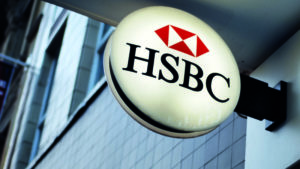Nick Train has said he “will absolutely not change” his Finsbury Growth & Income portfolio, despite a dramatic sell-off which stung some of his largest holdings.
In the trust’s latest update Train (pictured) said performance had suffered as the UK stock market saw a sell-off in international growth stocks “after an amazing run” and a rally in domestic value stocks.
“Performance last month gives shareholders some idea of what can happen when investor preferences change and there are resulting shifts out of hitherto popular sectors toward underperforming or unloved areas,” he said.
Three of the trust’s largest holdings – Relx, Diageo and Unilever – fell during September with Unilever suffering the biggest setback, down 6%.
By contrast, Train said that “holdings perceived to offer exposure to UK domestic fortunes” like Schroders and the Daily Mail had a bumper month, with the former up 12.6%.
D2C giant Hargreaves Lansdown, which he also lumps into this category, saw its shares spike 9.7% despite the overhang of the Neil Woodford crisis. In the last month however its share price has slipped 14.8% to £17.29 following news that Woodford Equity Income will be wound up and the UK equities manager will shut up shop.
As the fund is more exposed to the former, growth-oriented type of company, with Relx, Unilever and Diageo accounting for 29.2% of the portfolio, the trust struggled to beat the FTSE All Share over the month, Train said.
Finsbury Income & Growth was up 0.4% on a net asset value basis and its share price was up 0.9% while the index was up 3% in September.
Train doubles down
Train has previously warned investors his highly concentrated Finsbury Growth & Income may suffer a period of poor performance “at some point”.
But in the September report he stressed he would not be changing tack despite a bumpy period for growth stocks and instead would use the share price weakness as a buying opportunity.
“To avoid any doubt – we absolutely will not change the shape of the portfolio because of the possibility of a period of underperformance,” he emphasised.
“In fact, we are inclined to add to some of last month’s poorer performers, especially Diageo and Relx. The long-term growth opportunities these two enjoy make them still appear ‘cheap’ to us, whatever concerns others express about their apparently expensive relative valuations today.”
Train does not believe in categorising stocks as ‘growth’ or ‘value’ and is indifferent to where companies generate their sales.
“We are interested only in investing in what we analyse to be companies with exceptional brands or franchises. We assume that if we are correct in that analysis – of the exceptional business qualities of our companies – then we can ignore the inevitable swings of investor sentiment and, in the long run, our investment performance will be satisfactory.”
‘Hope’ for Pearson
But the star manager admitted he had been “mortified” yet again by academic publisher Pearson which saw its shares tank 11% after delivering another profit warning.
“Pearson delivered what has become almost a traditional profit warning in the third quarter of the academic year, noting that sales of physical text books are now plummeting in the US,” he said.
“We are mortified to consider how long we have persevered with this investment. At its month end close of £7.38 there has not been a ruinous loss of value for shareholders, although there is an unrealised loss on our book cost, but there has been an opportunity cost hanging on to this holding, when other ideas we have had have done so much better.”
However, Train seemed conflicted about whether or not he would finally give the publisher the heave ho.
“Although I find it hard to judge what I should do next with the holding, if asked whether I thought there is still any hope in Pearson’s strategy of taking its analogue, 20th century Intellectual property and successfully digitising it – in a way that increases its value to users – I would have to say: yes, there is still hope,” he said.







